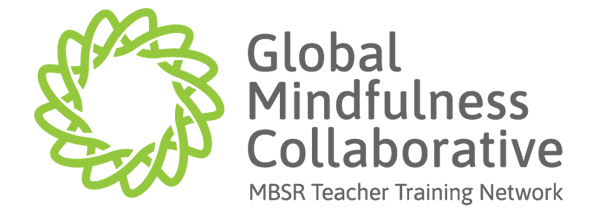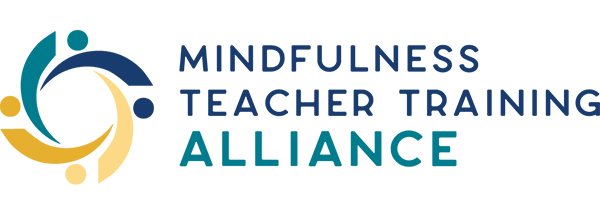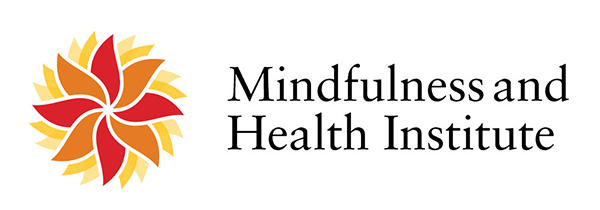The GMC Mindfulness Based Stress Reduction (MBSR) Teacher Training Certificate
The GMC MBSR Teacher Training Certificate is based on the Global Mindfulness Collaborative’s (GMC) teacher training pathway and curriculum that has been developed by leaders in the MBSR community over decades. The teachers for the programs are members of the Mindfulness Teacher Training Alliance (MTTA), an American alliance of teachers and members of the GMC. The programs are presented through the Mindfulness and Health Institute (MHI), a mindfulness-based training organization.
Become a Certified MBSR Teacher
Complete your training and be certified to teach MBSR through the Mindfulness and Health Institute (MHI) in partnership with well-trained, experienced senior MTTA MBSR Trainers and the GMC MBSR Teacher Training Pathway.



Proven Training from Some of the Most Experienced Teachers in the World

The Global Mindfulness Collaborative (GMC) is one of the largest international associations with many of the longest trained MBSR teachers and trainers in the world. The GMC is comprised of 35 individual members representing 13 countries. These early pioneers of MBSR offer culturally rich and deeply diverse approaches to training. GMC members are united by their commitment to standards of practice, integrity in the research and implementation, teacher competencies, and the fidelity of MBSR.
The Mindfulness Teacher Training Alliance (MTTA) is a U.S. member of the Global Mindfulness Collaborative, bringing together MBSR trainers from North America. MTTA teacher trainers have decades of experience teaching MBSR and training MBSR teachers. MTTA teacher trainers provide programs and mentorship to support the development of an embodied practice, an understanding of the depth and challenges of the MBSR curriculum, and the professional skills needed to share this with a diverse range of participants and populations.
The Mindfulness and Health Institute (MHI) is a world-wide training organization that presents programs. MHI collaborates with teachers, students, and other institutions to foster a flourishing world through mindfulness practices, leading to improved wellbeing and helping to alleviate suffering and separation. We work to be a trusted source for thoughtful, evidence-based, evidence-informed, and innovative mindfulness-based programs and events. We align with the values and vision of the GMC and the MTTA and through this collaboration with them to offer the GMC MBSR Teacher Training.
The GMC MBSR Teacher Training Pathway
International Standards
GMC and MTTA teachers and trainers adhere to the global ethics, embodied practice, and current standards for teachers and teacher trainers as articulated in the International Mindfulness Integrity Network. MHI aligns with these standards and practices; more on MHI’s policies and guidelines may be found here.
We believe in Making Teacher Training Accessible and Affordable
This Certificate to Teach MBSR is within your reach in 2-3 years with tuition that is under $10,000 or less with early-bird discounts and tuition assistance for those in need. The option to pay over time is also available.
Supportive Student-To-Teacher Ratios: A Critical Factor for Learning
Students to teachers ratios are limited to no more than 17-1 for MBSR Intensive Practice and Teaching (IPT), and for other MBSR teacher training programs a ratio of no more than 20-1.
While there are many factors that contribute to learning, with experiential professional trainings, the number of students per teacher is a critical factor for learning. Our goal is to create an environment that supports engagement between the student and teacher, allows for thoughtful and thorough feedback, and time for reflective discussions.
Transfer Students Accepted and Welcomed
Students from other MBSR teacher training programs are accepted on a case-by-case basis up to Group Mentoring. For example, if a student is Qualified to Teach MBSR, they may be eligible to transfer into the GMC MBSR Teacher Training Pathway beginning with Group Mentoring, and receive full credit for MBSR Essentials and MBSR Intensive Practice and Teaching (IPT).
The History of MBSR Teacher Training

Mindfulness-Based Stress Reduction (MBSR) was developed by Jon Kabat-Zinn at the University of Massachusetts Medical Center (UMass) in 1979 as a public health initiative. Since its development, there has been an evolution of teacher training. MBSR Teacher Training began with internships, then weekend intensives, and eventually it was developed into a robust teacher training pathway.
Originally created at UMass Center for Mindfulness in 2000, this form of MBSR teacher training emerged over time, during its 18 years of being offered at UMass. It was then refined by the Mindfulness Center at Brown University and further refined by the Global Mindfulness Collaborative (GMC).
History of the GMC MBSR Teacher Training Pathway
The development of the GMC MBSR Teacher Training curricula was overseen by Florence Meleo-Meyer, who worked with a team of GMC MBSR teacher trainers. In the early years of MBSR at UMass Center for Mindfulness (CFM), Florence apprenticed with Jon Kabat-Zinn and Saki Santorelli in the 1990’s. She co-founded and was Director of the Oasis Institute at UMass CFM, which was the first professional MBSR teacher training organization to offer a formal curriculum and certification to teach MBSR.
This GMC MBSR Teacher Training curricula is an evidence-based MBSR teacher training in alignment with high quality standards while meeting specific country, cultural, and language needs.
MBSR Teacher Training Level 1, Level 2, and Certification
The MBSR Teacher Training Pathway consists of four programs and four retreats distributed across two levels of training.
Level 1: Become Qualified to Teach MBSR
- MBSR Essentials
- MBSR Intensive Practice and Teaching (IPT)
- Two Retreats
Level 2: Further development of teaching skills
- MBSR Group Practice and Teaching (GPT)
- MBSR Individual Supervision
- Two more retreats
Certification as an MBSR Teacher
- Successful completion of all elements of the teacher training leads to Certification as an MBSR teacher.
- The MBSR Teacher Certification is granted by the GMC.
PLEASE NOTE: Three of the four required retreats must be in-person. Only one retreat may be taken online as meeting the requirements to become certified.
MBSR Teacher Training Course Descriptions
MBSR Essentials

MBSR Essentials is the first step in the Global Mindfulness Collaborative’s MBSR Teacher Training Pathway. It offers a highly experiential exploration of the MBSR curriculum, cultivating evidence-based teaching competencies and understanding from the inside out. Whether you intend to teach MBSR or integrate mindfulness into your professional field in other ways, Essentials is a special opportunity to deepen practice. As we discover greater degrees of freedom in our own lives, we are able to bring the essential transformative elements of mindfulness to others in the service of minimizing harm and maximizing human flourishing.
Prerequisites for MBSR Essentials
– Previous participation in an 8-week MBSR course
– A 5-7-day residential meditation retreat (the first of four retreats required for certification)
– A minimum of two years of personal meditation practice
MBSR Intensive Practice and Teaching (IPT)

MBSR Intensive Practice and Teaching (IPT) is the second formal training on the pathway to teach, providing a deeper dive into the MBSR curriculum’s form and essence and greater clarity to its intention, content, and flow. True to its name, this training is an intensive immersion in MBSR that strengthens teaching skills and personal practice. As a trainee, you will expand your experiential and cognitive understanding of MBSR through practice teaching, receiving feedback from peers and trainers, study and self-reflection, mindfulness practice, and the support of the learning community. The IPT aims explicitly to develop teaching skills as well as the embodied presence and qualities of heart that support freedom from suffering for ourselves and those we serve.
Prerequisites for MBSR Intensive Practice and Teaching
– Previous participation in MBSR Essentials or its equivalent
– Have led a minimum of three introductory mindfulness programs
– A 5-7-day residential meditation retreat (the second of four retreats required for certification)
– An ongoing personal meditation practice
MBSR Group Practice and Teaching (GPT)

The Group Practice and Teaching (GPT) training marks the entry into Level 2 of the MBSR Teacher Training program and is designed to support your continuing development and refinement as an MBSR teacher. With the dynamic support of the GPT group and trainer, you will investigate the intentions and components of various curricular elements, and have opportunities to reflect and practice teaching according to specific needs and requests. Explorations of pedagogical issues, MBI-TAC domains, teacher competencies, and teaching as transformational practice are woven organically into the GPT program. Personal meditation practice continues to be the cornerstone of all investigations and is intrinsic to the course.
Prerequisites for MBSR Group Practice and Teaching
– Successful completion of MBSR Intensive Practice and Teaching (IPT) or its equivalent
– Have taught at least two (2) MBSR courses
– Have attended at least three (3) 5-7-day (or longer) silent, teacher-led retreats*
– Have continued with a daily mindfulness meditation practice
*Regarding the retreat requirements, for Certification, four silent, teacher-led retreats are required, three (3) of which must be in-person. Only one (1) live-online retreat is counted toward meeting the retreat requirements for Certification to teach MBSR.
MBSR Individual Supervision

Individual Supervision of the MBSR Teacher is the final course in Level 2 of the MBSR Teacher Training program. This training offers the MBSR teacher continuity and connection through the close relationship with their mentor throughout the full eight-week MBSR teaching cycle. This MBSR teacher training program is designed with the intention of providing individual guidance and support, as well as clarifying concepts and deepening understanding of the underlying principles of the MBSR program. Through the intention and commitment to work directly and intensively with their mentor, the trainee is able to refine and update the teaching of the MBSR program.
Prerequisites for MBSR Individual Supervision
– Successful completion of MBSR Group Practice and Teaching or its equivalent
– Have taught three or more MBSR courses
– An ongoing personal meditation practice
MBSR Teacher Assessment and Certification (MBSR TAC)

The MBSR TAC is the culmination of years of study, practice and teaching by the MBSR teacher candidate for certification. Through a review and certification process verified by the Mindfulness Research and Practice at Bangor University, identifying in the teacher candidate how the knowledge, skills, attitudes, and competences are expressed in the teaching. Strengths, areas for development, and recommendations for post-certification learning are assessed for a “continuing education” process that is essential as part of the MBSR teacher’s holistic development.
Prerequisites for MBSR Teacher Assessment and Certification
– Successful completion of MBSR Individual Supervision
– Have taught six or more MBSR courses
– Another 5-7-day residential meditation retreat for a total of four 5-7 day retreats, only one of which may be online and a minimum of three must be in-person.
– An ongoing personal meditation practice
Tuition Fees And Costs
We are committed to offering training that meets the highest standards of excellence. The tuition fees reflect the intention for maintaining affordable training.
MBSR Essentials: $ 2250
MBSR Intensive Practice and Teaching (IPT): $ 2800
MBSR Group Practice and Teaching (GPT): $ 1525
MBSR Individual Supervision: $ 2000
MBSR Certification Review: $ 1200
TOTAL: $ 9775
Payment plans are available. Early bird specials may also be available.
Other potential costs include:
- The costs of retreats in your budgeting because four 5-7 day retreats are required for certification. Please see below for “qualifying” requirements before attending a retreat
- Programs are currently held online. In the event that a program is held in-person, however, there are likely to be travel-related expenses in addition to the tuition fees.
Qualifying Silent Retreat Requirements

Attending silent retreats is an essential component in MBSR teacher development and formation. Retreats provide a direct experiential understanding of key underpinnings of the MBSR program, including cultivation of mindfulness, awareness, and compassion. Below are the requirements for qualifying retreats:
- The silent retreats need to be teacher led (live) by an experienced mindfulness teacher in a well-established tradition.
- There needs to be at least one individual or group interview (i.e., group discussion) with the retreat teacher(s).
- The experiential learning and guided practice instructions need to be aligned with the essential teachings found within Buddhist psychology including: Four Noble Truths, Four Foundations of Mindfulness, and Loving Kindness.
- A minimum of four silent retreats are required for Certification. Two of these need to be at least 5-days long and two need to be at least 7-days long. Retreats that are longer than 7-days are encouraged and accepted..
- If you are going to be attending a live on-line retreat, it is best to commit to creating a retreat environment dedicated to supporting silence and continuous practice.
MHI offers a number of retreats to meet the retreat requirements for teaching MBSR. For more information, click here.
